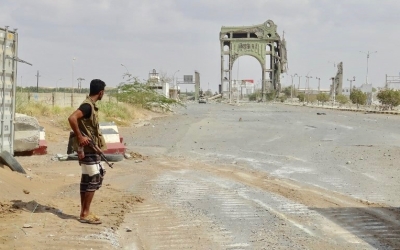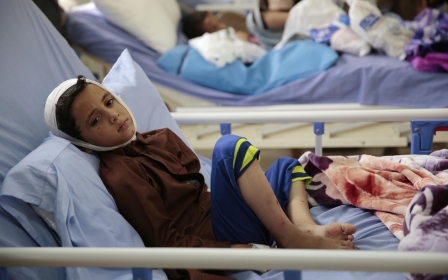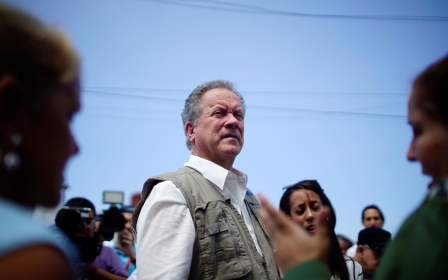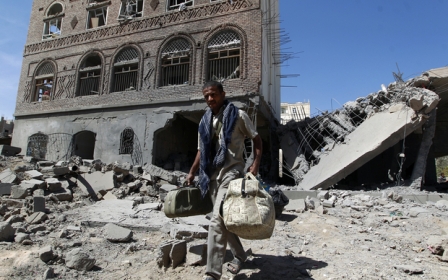Humanitarian chiefs concerned over Saudi and UAE aid funding for Yemen
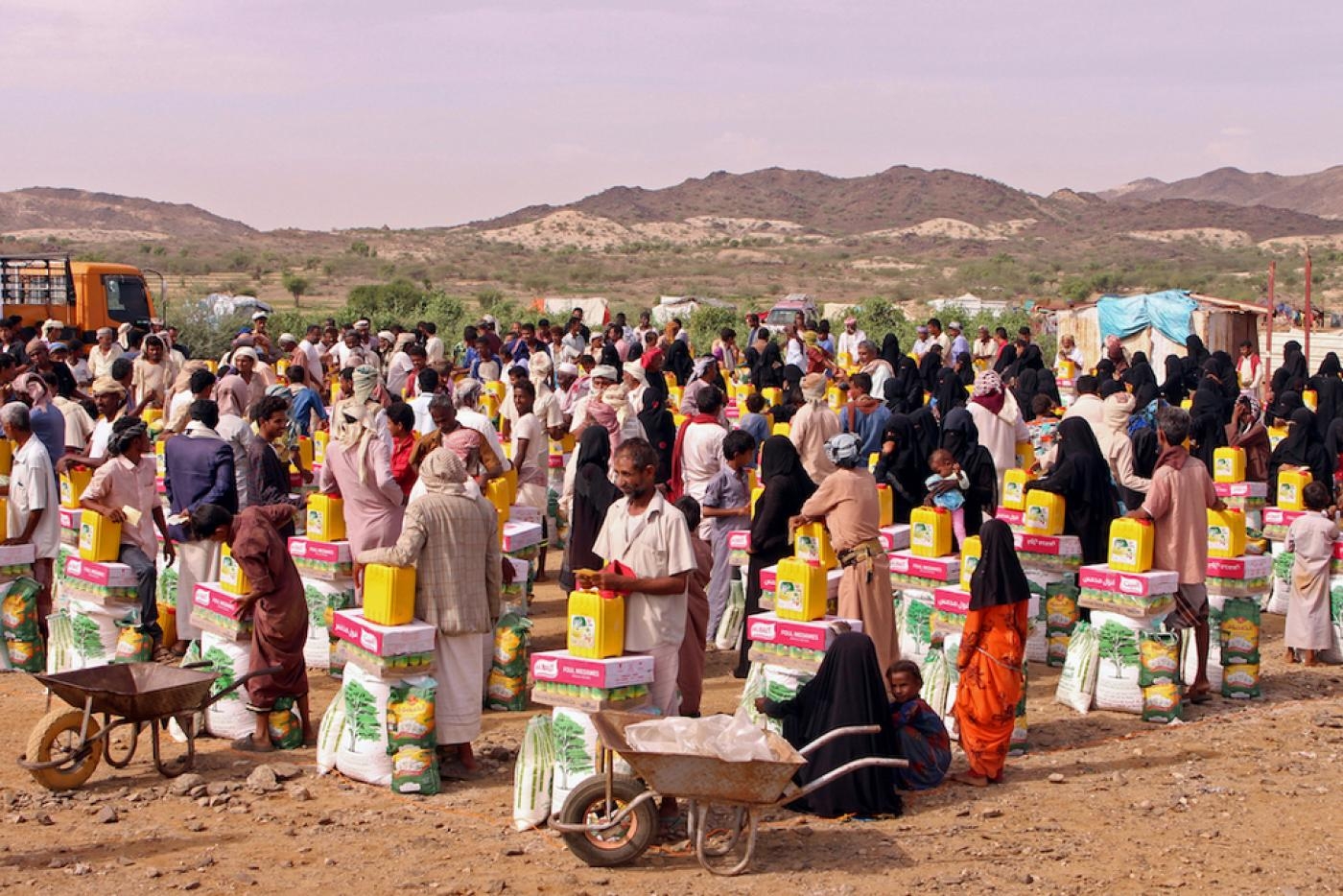
Humanitarian aid leaders have accused Saudi Arabia and the United Arab Emirates of double standards over their large donations to Yemen, claiming that the two Gulf countries give large cash flows amid their vicious military campaign in the war-torn country.
Riyadh and Abu Dhabi are expected to pledge a sizeable chunk of money ahead of Tuesday’s $4.2bn fundraising drive in Geneva to get food, medicine and other aid to 24 million Yemenis.
While these donations doubtless save lives, aid chiefs note that Yemen’s oil-rich neighbours have also been implicated in war crimes in Yemen, including bombing villages, torture and the use of child soldiers.
Jan Egeland, who previously headed United Nations aid operations, railed against the “hypocrisy of nations trading in arms or raining down shells and bombs on Yemeni civilians” in a strongly worded statement on Monday.
Egeland, head of the charity Norwegian Refugee Council, said 60 percent of last year’s aid to Yemen came from Saudi Arabia, the UAE and the US, which has helped its Arab allies’ war effort with arms, intelligence and aerial refuelling.
“They have, with other nations on both sides, contributed to the war, which has produced the shocking 24 million Yemenis in need of aid. That is more than three-fourths of the entire Yemeni population,” Egeland said.
Geert Cappelaere, UNICEF director in the Middle East, said the UN children’s agency had decided to continue taking cash from the UAE and Saudi Arabia because it paid for vaccination drives and other life-saving schemes.
'They have, with other nations on both sides, contributed to the war, which has produced the shocking 24 million Yemenis in need of aid'
- Jan Egeland, Norwegian Refugee Council
“It was not an easy decision to make,” Cappelaere told MEE.
“Even having received the money, UNICEF has never stopped being vocal about parties to the conflict, when, even having shown generosity, they continue killing children, maiming children, when schools and health facilities and water points are destroyed.”
Manuel Bessler, aid chief for the government of Switzerland, which is co-hosting this week’s meeting, said the fundraising goal was “astronomical” and that cash from the Middle East and Asia was needed to supplement Western donations.
Bessler said it was “important to have financial resources” from regional powers “even when they are party to the conflict” but added that this did not give them a free pass to kill civilians or bomb schools and hospitals.
“It is important, however, to emphasise that this does not in no way free them from observation of international humanitarian law,” Bessler told MEE.
Saudi Arabia and the UAE intervened in Yemen in 2015 in a bid to restore President Abd-Rabbu Mansour Hadi’s government after the Houthi rebels in late 2014 ousted it from power in the capital, Sanaa.
The conflict, widely seen as a proxy war between Riyadh and Tehran, has been locked in a bloody stalemate that has claimed some 65,000 lives and pushed 10 million people to the brink of famine, while 7 million people suffer from malnutrition.
All sides have been accused of committing atrocities. Last year, UN experts wrote a report on the Saudi-led coalition’s blockade around Yemen, blasting the coalition’s air strikes on “markets, funerals, weddings, detention facilities, civilian boats and even medical facilities”.
The report also accused the Houthis of using child soldiers and shelling civilians.
Saudi Arabia and the UAE claim they do their best to minimise civilian deaths. Their diplomatic missions to the UN did not immediately respond to MEE’s interview requests on Monday.
Of the total $5.2bn aid money provided for Yemen last year, the UAE gave 38.3 percent while 22 percent came from Saudi Arabia and 11.5 percent from the US, according to the UN’s financial tracking service.
Delegations from some 90 countries are expected in Geneva on Tuesday, including China and other “non-traditional” donors from the Middle East and Asia, said Bessler. He hoped to achieve more than three-quarters of the $4.2bn target.
Envoys will hear keynote speeches from UN Secretary-General Antonio Guterres, Sweden’s foreign minister Margot Wallstrom and others and take part in sessions on tackling hunger and rebuilding Yemen’s ravaged economy.
Middle East Eye propose une couverture et une analyse indépendantes et incomparables du Moyen-Orient, de l’Afrique du Nord et d’autres régions du monde. Pour en savoir plus sur la reprise de ce contenu et les frais qui s’appliquent, veuillez remplir ce formulaire [en anglais]. Pour en savoir plus sur MEE, cliquez ici [en anglais].


